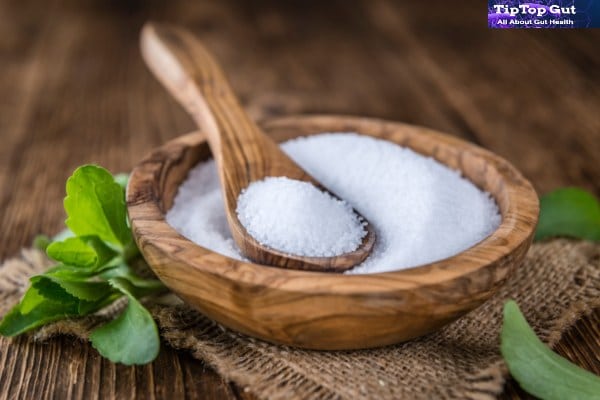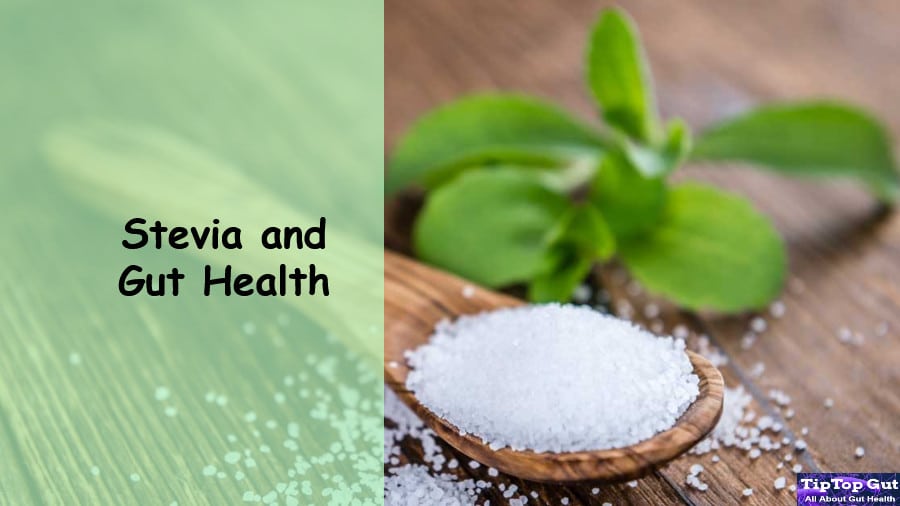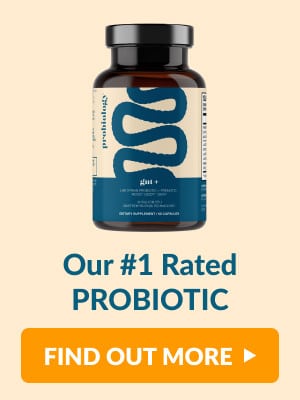We’re taught that sugar isn’t healthy for us from an early stage. Studies have proven that excessive sugar can raise our chances of developing obesity, Type 2 diabetes, kidney damage, and cell aging. Many are now seeking alternative sweeteners to reduce their sugar consumption while enjoying their sweet tooth.
I’m sure sugar is found on the “naughty” list, and we are all tempted to look at the labels now and then. But do you remember how long ago fat was the main culprit? Then it was carbs? Both proved to be anything but simple as enemies, and I believe that sugar will do the same.
Before discussing Stevia and gut health, let’s first read the importance of gut health.
The Importance of Gut Health
Although most people understand how important it is to maintain a healthy weight and implement the most effective methods for cardiovascular health, people can neglect the importance of gut health.
Dr. Elizabeth Hohmann of the Infectious Diseases Division at Harvard-affiliated Massachusetts General Hospital said, “This is a new frontier of medicine, and many are looking at the gut microbiota as an additional organ system.”
The digestive tract is home to diverse kinds of bacteria. Certain of these bacteria keep your body healthy. Maintaining a well-balanced and healthy gut is crucial in numerous ways.
Certain gut bacteria may stop inflammation, guard against certain kinds of cancer, and help reduce the symptoms associated with Rheumatoid arthritis.
There are various methods to ensure gut health One is to limit the use of antibiotics. Antibiotics may harm the beneficial bacteria in your gut.
Beware of foods that could cause harm to the health of your gut, like processed food items and red meat, is equally important. People can take probiotics and eat high-fiber foods and fermented foods like yogurt or kombucha to help promote healthy gut health.
There are good reasons to be worry of excessive amounts of any one ingredient, including sugar. A healthful diet is all about balance rather than perfection, and the quality of the ingredient is also important. In the case of sugar and gut health, real may be superior to fake. Let’s look at the reasons:
A Refreshing Version of Sweet
Since the 1970s, large levels of sugar added to foods have been associated with poor quality of life and the development of diabetes in a variety of studies. In the aftermath, a variety of sweeteners that are calorie-free or low-calorie were developed to serve as substitute ingredients.
There are three types of sweeteners.
- Sugars Natural sweeteners such as maple syrup, cane sugar, and honey.
- Sweeteners with reduced calories: sugar alcohols like sorbitol and the xylitol are found in sugar-free sweets and gum and many calorie-free drinks.
- Artificial sweeteners (or nonnutritive sweeteners or sweeteners with no calories): The five most well-known are:
-
- Saccharin (“Sweet and Low” is found in coffee sweeteners and chewing gum.)
- Aspartame (“Nutrasweet” or “Equal,” found in Diet Coke.)
- Acesulfame Potassium (“Ace K” or “Sweet One,” found in a variety of baked products.)
- Sucralose (“Splenda,” found in Coke Zero.)
- Neotame (Similar to Aspartame and used in the meat industry.)
Sadly even though these artificial alternatives aren’t as detrimental to blood sugar, several studies have shown that they can cause negative health consequences such as acid reflux, cancer, and a general decline in your gut’s microbiome. This is why the hunt is ongoing to find a safe, natural sweetener that isn’t harmful to the body!
While stevia has some potential in this area, recent research has shown that it’s certainly not the best choice, particularly for your stomach.
How Artificial Sweeteners Work?
Artificial sweeteners are a component of foods that produce an effervescent taste in your mouth but do not cause an increase in calories or a rise in blood sugar levels due to eating sugars. They accomplish this because they are so sweet that they allow you to enjoy the sweetness of sugar with only a tiny amount. For instance:
- Aspartame (NutraSweet Equal) is 180 times sweeter than sugar
- Saccharin (Sweet’N Low Sweet Twin Sugar Twin) is 350 times sweeter than sugar
- Stevia (Truvia and various brands) is 250 times sweeter than sugar
- Sucralose (Splenda) – 660 times sweeter than sugar
So far as I’m aware, the only three sugars, sucralose and stevia, have been proven to alter the microbiota composition in the gut. However, many other synthetic sweeteners like isomalt, maltitol and lactitol, and xylitol could increase the number of bacteria associated with weight gain.

What is Stevia?
Stevia is an alternative to sugar made by removing the leaves from the Stevia plant. It’s 100 and 300 times sweeter than table sugar, yet it doesn’t contain sugar, calories, or artificial components.
Many people do not like the taste. Some find it bitter, while others think that stevia tastes similar to menthol. Try it with the breakfast morning coffee or sprinkled on the top of your breakfast cereal to see if you enjoy the flavor.
The popular plant-based sweetener that is not sugar-based stevia could be a factor in an unbalanced digestive system. According to a recent study published in the journal Molecules.1
Researchers studied two types of stevia that originated from a plant belonging to the Chrysanthemum family. The herbal sweetener used in the commercialization they looked at had an inhibiting effect on the bacteria’s communication.
This is vital because bacteria molecules within the digestive system must communicate for optimal gut function and regulation. As the researchers point out, this process could result in an imbalanced gut and decreased functioning if this process is disturbed.
The study concluded that further studies are needed and advised companies in nutrition to conduct additional research before replacing artificial sweeteners with stevia.
Stevia and Gut Health: What Stevia Does to Your Gut Health?
According to studies, stevia negatively alters the gut flora and other aspects of your gut’s overall health…
Decreases Beneficial Bacteria
One study examined it against six Lactobacillus reuteri strains and found it hindered the development of all of them. The bacteria protect in low concentrations, which increases the risk of developing diabetes and inflammation, weight gain, and heart disease.
A new study has found that all sweeteners with no nutritional value like stevia alter the gut flora hindering the expansion of both kingdoms of bacteria (Bacteroidetes and Firmicutes), which can be beneficial or detrimental. Other sweeteners aren’t the answer.
Disrupts the Dopamine Reward System
Stevia disrupts the dopamine reward system. Dopamine is the most important chemical messenger or neurotransmitter produced by your body and stored within the digestive tract. It makes you feel satisfaction and pleasure. Dopamine also aids in motility, the muscle contractions that allow food to move through the digestive tract. A lack of motility could cause constipation (constipation), leading to the overgrowth of parasites, bacteria, yeast, and viruses.
It may also interfere with the communication between various bacteria in your gut microbiome. This is crucial for the balance of the microbiome and the health of your gut lining, in which immunity is a key factor.
Irritates Stomach Lining
It can irritate the stomach lining and the digestive tract, resulting in gas, diarrhea, etc. It can also contribute to intestinal permeability, causing allergic reactions, inflammation, etc.
If you’re wondering if you should use artificial sweeteners instead like the ones mentioned earlier, they also alter your gut microbiome. More importantly, they can increase your blood sugar and impede weight loss.
It seems like embracing sweet natural flavors of whole food and having a small amount of fresh honey or even dates occasionally to avoid raising the blood sugar levels over the long term could be the solution. I’ll indulge in a small amount of sugar once or twice per week; however, not daily.
Negatively Affects Gut Flora
Scientific Studies show that stevia negatively affects gut flora and other gut health-related areas.
Although more research is needed to verify the impact in ex vivo (AKA human studies), At least four studies on animals and one human in vitro research show that stevia can be detrimental to the microbiome. These are the summary of the studies:
- In numerous studies of Mice and Rats in a variety of studies, stevia decreased the number of “good” bacteria in the gut when it was combined in conjunction with the American food regimen (remember in my Meet Your Microbiome article? We’re looking to increase bacteria in the gut, not reduce them. that live in our gut).
- In a study of rats, stevia harmed metabolism and digestion in newborn rats and mother rats (meaning it passed through the umbilical cord during pregnancy).
- In a different study with rats, stevia compromised the dopamine transfer mechanism. This is how the gut controls dopamine release. Dopamine is the neurotransmitter responsible for happy and euphoric feelings, which is why we do not want to go without it!
- Recently, a human study found that stevia dramatically decreased “quorum sensing” in the gut. “Quorum sensing” is a fascinating scientific discovery about gut bacteria. It’s how bacteria communicate with one another and with your body. This study found that stevia has significantly disrupted the function.
These studies all suggest that stevia interferes with the microbiome and thus could be harmful.
However, the damage might continue to be a problem.
Other Side Effects
In addition to the possibility of a digestive imbalance, other negative consequences of stevia have been documented and documented in 372 studies, which include:
- An increase in appetite
- Gain in weight
- Headaches
- Depression
- Cognitive and behavioral effects
- Problems with neurology
- Preterm delivery is a risk
- The impact of cardiovascular disease
- The risk of chronic kidney disease
Researchers recommend that you Avoid stevia and use it in a limited amount.
The consensus is that stevia remains relatively untested; however, there are some holes in the scientific evidence. It is still a lot of research required to determine if the benefits of stevia without sugar outweigh the potential risks. While we wait, all those researchers in the study mentioned above recommended utilizing the sweeteners “sparingly” until we know more. It is not healthy for your gut.
Read More:
Biotics 8 Review: SCAM or A Legit Probiotic for Men?
Frequently Asked Questions about Stevia and Gut Health
Does stevia impact gut bacteria?
The study suggests that stevia can cause an imbalanced digestive system; neither form of stevia was found to kill bacteria living in your gut.
Is stevia a gut disruptor?
Stevia, a natural sweetener derived from plants, has been an increasingly popular alternative to sucralose and other sweeteners. However, it could have some potential problems of its own. A study conducted by Ben-Gurion University in the Negev has revealed that stevia could cause gut health issues due to the disruption of good bacteria’s balance.
Can stevia cause digestive issues?
As with all nonnutritive sweeteners, the main disadvantage is the flavor. Stevia has the taste of licorice, but it’s mild and somewhat bitter. Certain people love it; however, it’s not a favorite for some. Some products that contain sugar alcohols can cause digestive issues, including bloating or diarrhea.
Does stevia alter the gut microbiome?
Stevia is a natural sweetener. Stevia interferes with communication between various bacteria living in the gut. According to recent research conducted by Ben-Gurion University of the Negev (BGU) researchers, the natural sweetener Stevia can cause Microbial gut imbalance.
Is stevia a probiotic?
Stevia sweeteners are low-calorie prebiotic ingredients fermented by beneficial bacteria and boost the host’s health.
Another study revealed that sucralose produced a metabolic effect on bacteria and might hinder the growth of specific species. The most recent molecular research conducted by Angelia Ruskin University 5 discovered that the moment E. coli and E. Faecalis were identified as pathogenic, the cells killed by Caco-2 line the intestinal tract’s walls.
Read More:
How to Get Better Gut Health? An Ultimate Guide 2022
Scientific Studies and References
- Cancer.org
- Medical News Today
- WebMD
- Healthline
- HuffPost
- Neuro Science News
- Francisco Javier Ruiz-Ojeda, Julio Plaza-Díaz, Maria Jose Sáez-Lara, Angel Gil, Effects of Sweeteners on the Gut Microbiota: A Review of Experimental Studies and Clinical Trials, Advances in Nutrition, Volume 10, Issue suppl_1, January 2019, Pages S31–S48, https://doi.org/10.1093/advances/nmy037.
- Markus, V.; Share, O.; Teralı, K.; et al. Anti-Quorum Sensing Activity of Stevia Extract, Stevioside, Rebaudioside A and Their Aglycon Steviol. Molecules. Published November 23, 2020;25, 5480. doi:10.3390/molecules25225480
- Kasti AN, Nikolaki MD, Synodinou KD, Katsas KN, Petsis K, Lambrinou S, Pyrousis IA, Triantafyllou K. The Effects of Stevia Consumption on Gut Bacteria: Friend or Foe? Microorganisms. 2022; 10(4):744. https://doi.org/10.3390/microorganisms10040744
-
Becker SL, Chiang E, Plantinga A, Carey HV, Suen G, Swoap SJ. Effect of stevia on the gut microbiota and glucose tolerance in a murine model of diet-induced obesity. FEMS Microbiol Ecol. 2020 Jun 1;96(6):fiaa079. doi: 10.1093/femsec/fiaa079. PMID: 32356872; PMCID: PMC7233940.

















